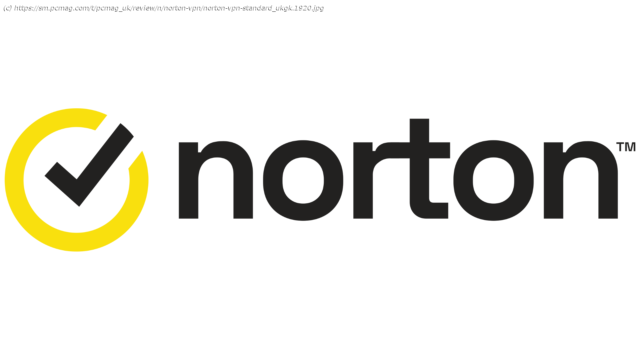Norton VPN Standard offers a solid set of essential features, but it still needs to grow to compete as a top-tier standalone VPN service.
Norton’s VPN feels like it is still growing from its inception as a bundled add-on to the Norton 360 security suite. It has a solid foundation with a physical-only server network, advanced routing technology like double VPN, and optimized servers for P2P and streaming traffic. However, a lack of short-term plans and anonymous payment methods are clear downsides, while lengthy data retention periods increase your risk when it comes to potential breaches. Although it shows promise, Norton VPN Standard ultimately lags behind competitors such as our Editors’ Choice winner, Proton VPN, which has more flexible plans and delivers a more private experience across the board.How Much Does Norton VPN Cost?
I normally evaluate a VPN’s price based on its monthly option. I don’t recommend long-term plans because you can end up locked into a subscription that may not work for you down the line. Plus, those discounts you see tacked onto annual plans are often temporary, and you may end up with an unpleasant surprise when it renews at the full non-discounted rate. Unfortunately, Norton only has annual subscriptions.
There are three price tiers: Standard, Plus, and Ultimate. The Standard plan is $39.99 ($3.33 per month) for the first year (and renews at $79.99). Plus is $49.99 ($4.17 per month) for the first year (it renews at $109.99). Finally, the Ultimate plan is $59.99 ($5 per month) for the first year (and renews at $129.99).
For this review, I’m evaluating the Standard plan since it only includes the VPN and a few related extras. Norton’s Plus and Ultimate tiers expand into security suite territory with a bundled antivirus, password manager, parental control hub, cloud data management, and dark web monitoring. For a comprehensive overview of all of those features, check out our review of Norton VPN Ultimate.
There is a seven-day free trial, but you must input payment information and create an account. It renews at the Standard plan rate after that week. All annual plans are backed by a 60-day money-back guarantee, which well exceeds the average 30-day refund period I see from most VPNs. While having a single term length for plans does demystify pricing compared with services that have varying discounts and features depending on how long you subscribe, I would have liked to see a monthly plan for users who may not want to be locked into such a lengthy subscription.
Payment options are limited. Norton accepts PayPal, Google Pay, and credit cards. No cryptocurrency or alternative payment methods are available. That makes purchasing anonymously nearly impossible unless you use a burner card and email, which can make managing your account difficult. Many competing VPNs offer cryptocurrency payment options, while IVPN and Mullvad even let you pay with cash.What Do You Get for Your Money With Norton VPN?
Norton’s standard plan secures just five devices, which is an easy limit to hit. In fact, I ran into that cap when performing my tests across devices. With competitors, such as TunnelBear, removing connection restrictions entirely, five simply doesn’t cut it. You can get 10 simultaneous devices by upgrading to the Ultimate plan, but that bare minimum shouldn’t be locked behind a pricier subscription with extras you may not need.
Aside from that limitation, the Standard plan is rich with useful tools. Split tunneling is available, allowing you to route apps out of the VPN tunnel. A basic kill switch is present, though it lacks any advanced configuration options. There is support for LAN devices and a switch to enable multi-VPN support if you want to run Norton in tandem with another service. Auto-connect can be configured to your liking, such as only triggering when you launch a P2P application or connect to a public network.
A built-in tracker blocker shows you how many trackers have been thwarted by it, and there’s an ad blocker extension for Chrome, Edge, and Firefox. As with most ad blockers, it works well on text-based websites. I was surprised that the extension excelled at blocking ads on video sites like YouTube as well. You can also control the VPN from the extension, which makes it easy to stay protected without having to stop what you’re doing.What Protocols Does Norton VPN Support?
Norton has a proprietary protocol called Mimic that aims to bypass VPN-blocking technologies by disguising traffic as standard HTTPS. It is backed by post-quantum encryption and prioritizes privacy, resulting in slower speeds compared with WireGuard. I found it effective at bypassing blocks on streaming services such as Netflix (more on that later).
While I didn’t experience any DNS leaks with Mimic, I am hesitant to recommend using a closed-source protocol. Even ExpressVPN has released its protocol, Lightway, to the public, ensuring transparency by giving out the core codebase. WireGuard and OpenVPN are both industry-leading open-source protocols. With nearly every alternative being transparent, it’s not worth placing your trust in proprietary protocols that could have unknown security vulnerabilities.
Mimic, WireGuard, and OpenVPN are available on Windows and Android. MacOS and iOS users are limited to just IPSec and Mimic. Norton does not currently offer Linux support.Servers and Server Locations
Many VPNs claim to have tens of thousands of servers all over the world. While some of that marketing hype may be technically true, it doesn’t mean your experience will necessarily be better compared with a network that has fewer options. The way that VPNs can boast support for so many locations is by using virtual servers. While a virtual server can give access to a region with hard-to-access infrastructure, it isn’t a one-to-one substitute for a physical one.






